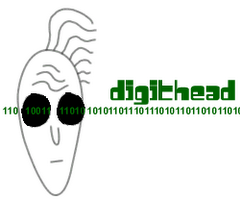The Economist says American universities represent declining value for money.
There are plenty of issues and inefficiencies in the current university system: rising fees and student debt, high drop-out rates, bundling, mismatching of skills to jobs.
"Expenditures on instruction have risen more slowly than in any other category of spending, even as student numbers have risen."
A university is a special bundle of education, accreditation, branding, research, sports, campus lifestyle and amenities, and much else. But, as universities get more expensive and state funding declines, the opportunity grows for cheaper solutions to slide in underneath. In response, universities will likely start reducing time to graduation and offering more ala-cart options.
The declining plight of the middle class factors in. While a degree leads to a substantial increase in earnings, that's not because degree-holders are getting ahead over time, it's that high-school graduates are falling behind. With grade inflation and increasing competition, a degree means less than it once did. Some, like Peter Thiel, think you should skip college and go to a start-up.
On the other hand, Arnold Kling, author of Many-to-One vs. One-to-Many: An Opinionated Guide to Educational Technology, is skeptical about the value of online education.
In Kling on Education and the Internet, he argues that two factors are missing from massive online courses, as currently formulated:
- Personalization: what would you do if teaching was one-to-one?
- Feedback: "teaching equals feedback"
"What would I [as a teacher] do if there were just one student in the room? You wouldn't lecture to them. You would probably give them lots of things to think about, problems to work. And as they worked the problems you would coach them directly..."
At the graduate level, the learning skills to select material and reflect on progress are expected. The do-it-yourself scholar can personalize their own experience. At the K-12 level, where innovation is most needed, most students are still building those learning skills. It's hard to imagine grade school working very well without the individual attention that good teachers can provide.
Education isn't limited to vocational training. The Economist forgets to mention things like personal enrichment and citizenship. The social/signaling aspects of universities won't be easily replicated online. To some extent, universities are a mechanism for buying your way into a certain social class.
While online courses might be in something of a bubble, there's little doubt that the economist is right in seeing a "tornado of change in education". For higher education, right now is one of those wake-up moments, reminiscent of Bill Gate's famous 1995 memo alerting Microsoft to the "Internet Tidal Wave".
What do you think? Is hacking education the way to go? Inevitable? Will something important be lost?









 R Bloggers
R Bloggers
I came across another bit of writing on the same topic from Michael O. Church
ReplyDelete"Much has been said about the potential for MOOCs to disrupt education, although I think the threat is overstated. While the current extortion (a choke-hold on the middle-class job market) that justifies enormous college tuitions will go away, as it should, there’s still an immense social value to the college experience, much of which occurs outside of the classroom. That won’t change. So if “disruption” occurs, it will be in the direction of making “the Real World” more like college. It won’t kill off the university."
This comment has been removed by a blog administrator.
ReplyDelete